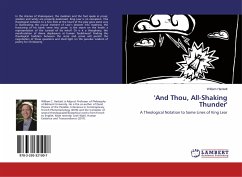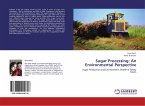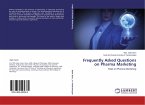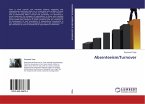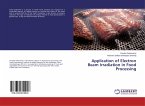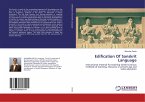In the dramas of Shakespeare, the madman and the fool speak in prose; wisdom and sanity are properly poeticised. King Lear is no exception. This theological notation to a few lines at the heart of the play goes some way in illuminating the crucial moment of Lear's descent into madness, the fracturing of his blank verse into prose: Is the storm on the heath a representation of the turmoil of his mind? Or is it a theophany, the manifestation of divine displeasure at human foolishness? Finding the theological tradition between the verse and prose will permit the negotiation of these questions and shed light on the peculiar wisdom of poetry for Christianity.
Bitte wählen Sie Ihr Anliegen aus.
Rechnungen
Retourenschein anfordern
Bestellstatus
Storno

